Shango: Powerful Thunder God And Symbol Of Kingship Among Yoruba People Of West Africa
A. Sutherland - AncientPages.com - Kingship and weather are strongly associated with Yoruba mythology. Myths and legends of Yoruba say that the greatest warrior-king, Shango, became the god of thunder, lightning, and storms after he died.
 This staff is an emblem of Shango, the Yoruba god of thunder. It combines seemingly contradictory aspects of Shango-the idea that it is Shango who hurls thunderbolts to punish wrongdoers with the belief that he is generous, the giver of children, and the protector of twins. A female devotee kneels in worship while balancing on her head the double ax motif that symbolizes the god's thunderbolts. The axes have been carved into twin heads. As in many African cultures, beauty is linked with moral values-in this case, hard work. The success of the woman also reflects the hard work and achievement of her husband, who supports her generosity. Image credit: Cliff1066 - CC BY 2.0
This staff is an emblem of Shango, the Yoruba god of thunder. It combines seemingly contradictory aspects of Shango-the idea that it is Shango who hurls thunderbolts to punish wrongdoers with the belief that he is generous, the giver of children, and the protector of twins. A female devotee kneels in worship while balancing on her head the double ax motif that symbolizes the god's thunderbolts. The axes have been carved into twin heads. As in many African cultures, beauty is linked with moral values-in this case, hard work. The success of the woman also reflects the hard work and achievement of her husband, who supports her generosity. Image credit: Cliff1066 - CC BY 2.0
Among the Yoruba, he is generally known as an ancient king of Oyo and the grandson of Oduduwa, also revered today as the hero, warrior, leader, and father of the Yoruba race.
Shango – Most Powerful Nature God
In the beliefs of the Yoruba people of West Africa, Shango is the most powerful nature god. He is still celebrated in certain parts of the world. Shango has followers and priests responsible for burying anyone killed by lightning. They may also inspect property struck by lightning to find the thunderbolt.
His sanctuaries are decorated with statues of women or mothers and children. Shango has sole control over the thunder and presides at births. His followers believe he advocates justice. His anger reaches everyone who offends him.
He is usually portrayed with horns and a ram's head and holding a double ax. His wives are from three rivers: Oya (the Niger River), Oshun, and Oba. His favorite colors are red and white.
His name is believed to be derived from " shan, "to strike violently," and " go, "to bewilder," and refers to peals of thunder, which are supposed to be produced by violent blows.
Shango Was Once An Earthly King
He was once an earthly king noted for his authoritarian rule among his people. It is said that thunder and lightning shook the earth on the day he was born. Legend has it that Shango was a violent and cruel king whom his people so hated that he finally decided to hang himself in the forest.
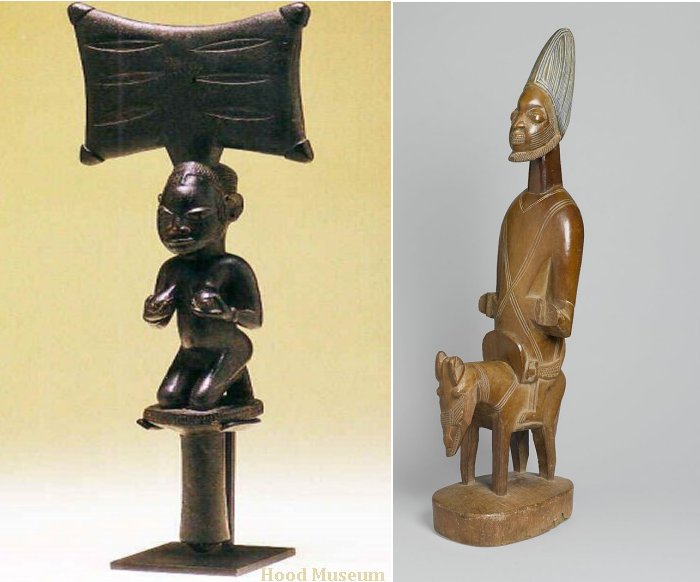 Left: Shango, thunder god of the Yoruba. Image credit: Hood Museum via clarku.edu; Right: Figure of Shango on Horseback. by Yoruba carver Toibo. Image credit: CC BY 3.0
Left: Shango, thunder god of the Yoruba. Image credit: Hood Museum via clarku.edu; Right: Figure of Shango on Horseback. by Yoruba carver Toibo. Image credit: CC BY 3.0
Another variant of the Shango myth also says that he never died but instead ascended to heaven to continue using his terrible powers as the god of thunder, lightning, and storms.
He had both enemies and worshipers who built many shrines and temples dedicated to him after he died.
Officially, Shango's priests used to say that Shango ascended to heaven, but the Yoruba did not want to believe it. As lightning and storms did not cease after Shango's death, the Yoruba held Shango responsible. He sustained his terrifying powers in the afterlife and continued using his double axe to induce lightning storms that devastated the ground and shook the earth.
The Yoruba people believe that Oya, the goddess of the River Niger, often accompanied Shango. Oya was responsible for powerful winds and gusts.
Shango Has Counterparts In Beliefs Of Other Cultures
Storms, thunder, and lightning were often associated with the highest or war gods. In many cultures, thunder was believed to be a creative force and a precursor to a life-giving and fertilizing rain.
The Greek god Zeus had a mighty thunderbolt forged by Hephaestus, the sky-dwelling blacksmith, and vajra, a powerful thunderbolt throwing light belonging to Indra. Meanwhile, 'dorje' was comparable to it in Tibet beliefs. Mjölnir (Mjolnir) is Thor's terrible ax hammer in Norse mythology. In the Inca's beliefs, Catequil (or Apocatequil), the god of thunder and lightning, was believed to create thunder by striking the clouds with his sacred spear and a mighty club.
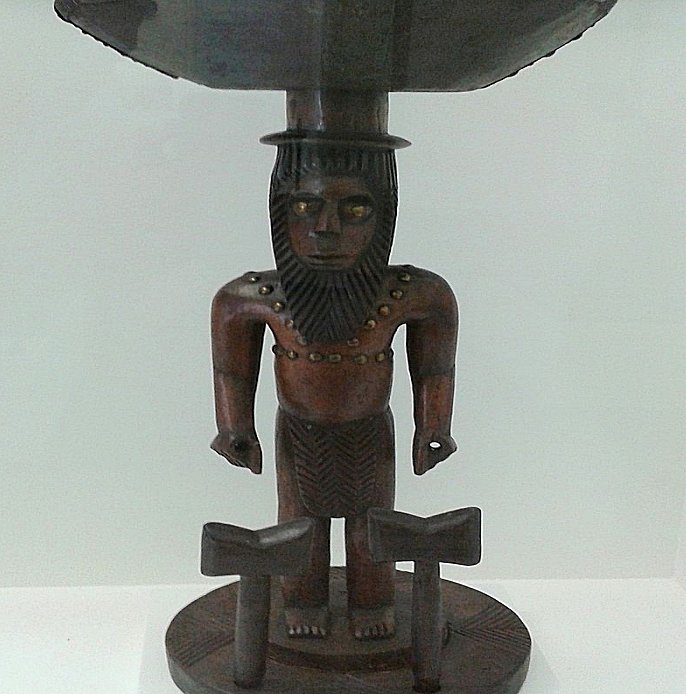 Shango god. Image credit: National Museum of Brazil, Rio de Janeiro. CC BY-SA 4.0
Shango god. Image credit: National Museum of Brazil, Rio de Janeiro. CC BY-SA 4.0
Tradition has it he created so much damage on the ground that terrified Inca sacrificed their children to calm the god's fury.
Storms - Manifestation Of Shango's Wrath
In his 'Traditional Offa Yoruba Religion in Nigeria' T.P. Sunday writes: "Thus, it is not surprising that thunder is seen by the Yoruba as a manifestation of the divine wrath as this aspect of Shango's life is noted for its violent storms, especially in Yorubaland considered to be "the second region in the world for lightning frequency, consisting of "there sounding booms, the deafening sound of the thunderclaps; the blinding, dazzling, crisscrossing; end to end flashes of the lightning" all of which contribute to and affirm the sense of divine presence in the storm; such that the following song is reported as addressed to Shango:
"O Shango, thou art the master!
Thou takest in thy hand the fiery stones,
To punish the guilty!
To satisfy thy anger!
Everything they (the stones) strike is destroyed,
The fire eats up the forest,
The trees are broken down, And all things living are slain…"
Regarding political sense, it may be true that Shango is the great national divinity of the Yoruba in general, although not in the ultimate religious sense..."
Written by – A. Sutherland - AncientPages.com Senior Staff Writer
Updated on Oct 24, 2023
Copyright © AncientPages.com All rights reserved. This material may not be published, broadcast, rewritten or redistributed in whole or part without the express written permission of AncientPages.com
Expand for referencesReferences:
Bouquegneau C, Rakov V. How Dangerous Is Lightning?
Johnson, S, History of the Yorubas
Sunday P. T. Traditional Offa Yoruba Religion in Nigeria
More From Ancient Pages
-
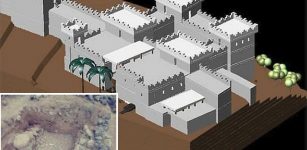 Cursed Biblical City Bethsaida May Have Been Found – But Scientists Argue About The Discovery
Archaeology | Sep 1, 2020
Cursed Biblical City Bethsaida May Have Been Found – But Scientists Argue About The Discovery
Archaeology | Sep 1, 2020 -
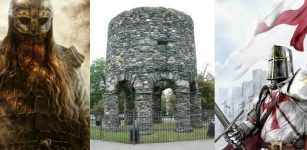 Controversial Newport Tower – Built By The Vikings, Knights Templar, Freemasons Or Someone Else?
Featured Stories | Mar 19, 2017
Controversial Newport Tower – Built By The Vikings, Knights Templar, Freemasons Or Someone Else?
Featured Stories | Mar 19, 2017 -
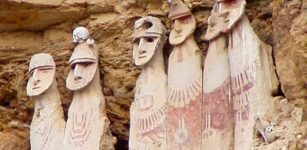 Genetic Evidence Reveals: Chachapoyas “Cloud People” Resistant To Inca Rule
Archaeology | Dec 14, 2017
Genetic Evidence Reveals: Chachapoyas “Cloud People” Resistant To Inca Rule
Archaeology | Dec 14, 2017 -
 Teeth Pendants And Prominent Status Of Elks In Stone Age – New Study
Artifacts | Jan 15, 2021
Teeth Pendants And Prominent Status Of Elks In Stone Age – New Study
Artifacts | Jan 15, 2021 -
 Melisandre, The Red Woman: The History Behind Game Of Thrones’ Mysterious Mystic
Featured Stories | Jun 19, 2019
Melisandre, The Red Woman: The History Behind Game Of Thrones’ Mysterious Mystic
Featured Stories | Jun 19, 2019 -
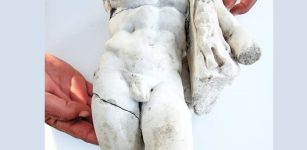 Fragment Of A Fine Marble Statuette Of Heracles Found In Jezreel Valley, Israel
Archaeology | May 24, 2023
Fragment Of A Fine Marble Statuette Of Heracles Found In Jezreel Valley, Israel
Archaeology | May 24, 2023 -
 Codes Of Ur Nammu: World’s Oldest Known Law Code
Ancient History Facts | Mar 11, 2016
Codes Of Ur Nammu: World’s Oldest Known Law Code
Ancient History Facts | Mar 11, 2016 -
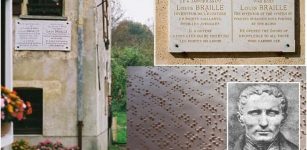 On This Day In History: Louis Braille – Creator Of Alphabet For Blind People Died – On Jan 6, 1852
News | Jan 6, 2017
On This Day In History: Louis Braille – Creator Of Alphabet For Blind People Died – On Jan 6, 1852
News | Jan 6, 2017 -
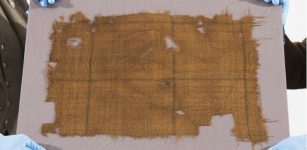 Scotland’s Oldest Tartan On Display For The First Time!
Artifacts | Apr 6, 2023
Scotland’s Oldest Tartan On Display For The First Time!
Artifacts | Apr 6, 2023 -
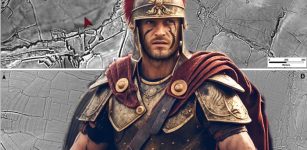 First-Ever Discovery Of Roman Road Network Spanning The South West UK Made By LIDAR
Archaeology | Aug 7, 2023
First-Ever Discovery Of Roman Road Network Spanning The South West UK Made By LIDAR
Archaeology | Aug 7, 2023 -
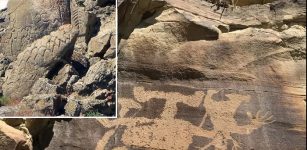 12,000-Year-Old Rock Art In North America – Dating Petroglyphs In The American West
Archaeology | Mar 4, 2022
12,000-Year-Old Rock Art In North America – Dating Petroglyphs In The American West
Archaeology | Mar 4, 2022 -
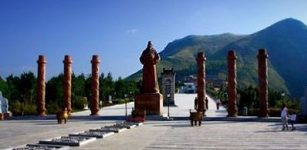 On this day in history: Li Shimin becomes Emperor Taizong of Tang, China – Sep 4, 626
News | Sep 4, 2015
On this day in history: Li Shimin becomes Emperor Taizong of Tang, China – Sep 4, 626
News | Sep 4, 2015 -
 On This Day In History: Pakal Ascends The Throne Of Palenque At Age Of 12 – On July 29, 615
News | Jul 29, 2016
On This Day In History: Pakal Ascends The Throne Of Palenque At Age Of 12 – On July 29, 615
News | Jul 29, 2016 -
 Mysterious Leaden Sarcophagus Found Under Notre Dame Will Be Opened
Archaeology | Apr 17, 2022
Mysterious Leaden Sarcophagus Found Under Notre Dame Will Be Opened
Archaeology | Apr 17, 2022 -
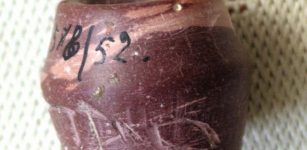 Unique Medieval Spindle Whorl With Cyrillic Inscription Discovered In Poland
Archaeology | Mar 9, 2018
Unique Medieval Spindle Whorl With Cyrillic Inscription Discovered In Poland
Archaeology | Mar 9, 2018 -
 Modern Pesticide Accelerates Corrosion Of Ancient Roman Bowl
Archaeology | Oct 6, 2022
Modern Pesticide Accelerates Corrosion Of Ancient Roman Bowl
Archaeology | Oct 6, 2022 -
 10 Remarkable Jain Temples – Marvelous Ancient Architecture And Stone Carvings
Featured Stories | Dec 17, 2015
10 Remarkable Jain Temples – Marvelous Ancient Architecture And Stone Carvings
Featured Stories | Dec 17, 2015 -
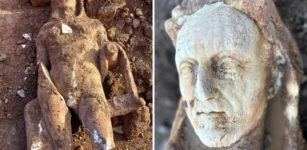 Ancient Life-Size Marble Statue Of Hercules Discovered In Rome
Archaeology | Jan 28, 2023
Ancient Life-Size Marble Statue Of Hercules Discovered In Rome
Archaeology | Jan 28, 2023 -
 On This Day In History: The Battle Of Actium – Sep 2, 31 BC
News | Sep 2, 2016
On This Day In History: The Battle Of Actium – Sep 2, 31 BC
News | Sep 2, 2016 -
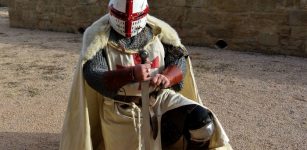 Were The Knights Templar Guilty Or Innocent Of The Crimes Laid Against Them?
Featured Stories | Dec 24, 2020
Were The Knights Templar Guilty Or Innocent Of The Crimes Laid Against Them?
Featured Stories | Dec 24, 2020
